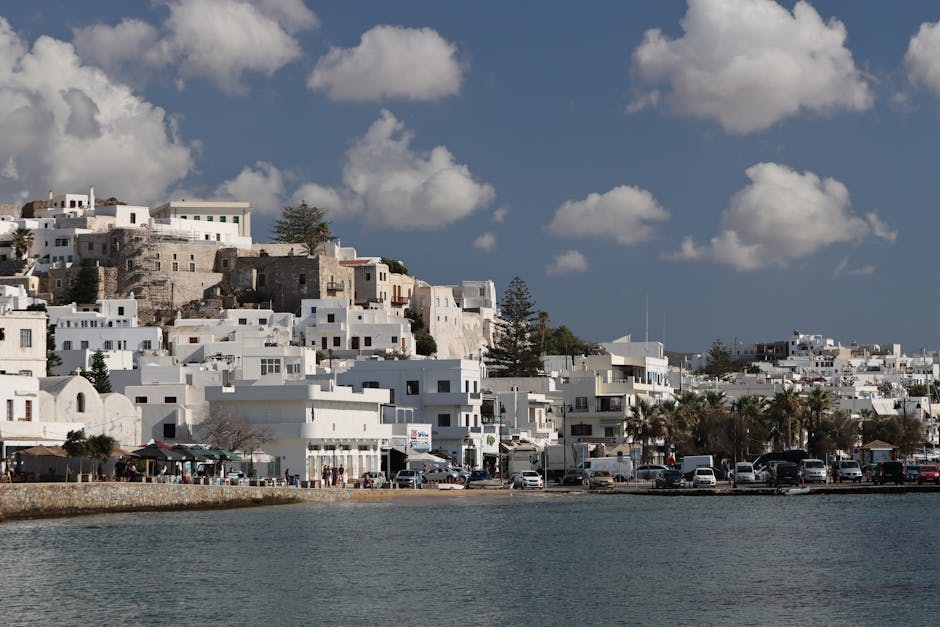As global awareness of environmental issues continues to grow, more travellers are seeking ways to explore the world while minimizing their ecological footprint. Sustainable travel is no longer just a trend but a necessary evolution in how we experience our planet. This comprehensive guide provides practical advice on making responsible choices throughout your journey, from planning and transportation to accommodation and activities.
Understanding Sustainable Travel
Sustainable travel (also called responsible or eco-friendly tourism) is about making conscious choices that minimize negative impacts on the environment, respect local cultures, and contribute positively to destination communities. The goal is to ensure that the places we love to visit remain preserved for future generations.
Sustainable travel encompasses three main pillars:
- Environmental sustainability: Minimizing carbon emissions, reducing waste, conserving natural resources
- Social sustainability: Respecting local cultures, supporting local communities, protecting human rights
- Economic sustainability: Ensuring tourism benefits local economies and creates fair employment
Planning Your Sustainable Journey
Research Destinations Mindfully
Before booking your trip, consider these factors when choosing a destination:
- Opt for destinations actively implementing sustainable tourism practices
- Consider visiting during shoulder seasons to avoid overtourism issues
- Research local environmental challenges and how tourism might impact them
- Look for destinations with strong environmental protection policies
Some countries leading in sustainable tourism initiatives include Costa Rica, Slovenia, Norway, New Zealand, and Bhutan. These nations have implemented policies that balance tourism development with environmental protection.

Choose Sustainable Tour Operators
When booking with a tour company, look for these indicators of sustainable practices:
- Certification from recognized organizations like Green Globe, EarthCheck, or Rainforest Alliance
- Transparent sustainability policies on their website
- Small group sizes to minimize environmental impact
- Employment of local guides and staff
- Fair treatment of wildlife and natural resources
At BigerFoner Travel, we partner with operators who meet strict sustainability criteria and regularly audit their environmental performance.
Eco-Friendly Transportation
Reducing Your Carbon Footprint
Transportation typically accounts for the largest portion of a trip's carbon footprint, particularly for long-haul travel. Consider these options to reduce your impact:
Air Travel
If flying is necessary:
- Choose direct flights when possible (take-offs and landings create the most emissions)
- Travel with airlines that use newer, more fuel-efficient aircraft
- Pack lighter to reduce fuel consumption
- Offset your carbon emissions through reputable programs like Gold Standard or Climate Action Reserve
Ground Transportation
Once at your destination:
- Use public transportation systems
- Rent electric or hybrid vehicles if available
- Choose trains over short domestic flights
- Walk or cycle for shorter distances
- Consider coach travel for group journeys

Sustainable Accommodation Choices
Where you stay can significantly impact your trip's sustainability profile. Look for accommodations that demonstrate commitment to environmental practices:
Eco-Certified Hotels and Lodges
Seek properties with recognized eco-certifications such as:
- LEED (Leadership in Energy and Environmental Design)
- Green Key
- BREEAM (Building Research Establishment Environmental Assessment Method)
- Green Tourism Business Scheme (particularly relevant in the UK)
Features to Look For
Sustainable accommodations typically incorporate:
- Renewable energy sources (solar, wind, hydroelectric)
- Water conservation systems (rainwater harvesting, low-flow fixtures)
- Waste reduction programs and recycling facilities
- Locally sourced, organic food options
- Non-toxic cleaning products
- Support for local conservation initiatives
Alternative Accommodation Options
Consider these often more sustainable alternatives to conventional hotels:
- Eco-lodges built with sustainable materials and low-impact design
- Locally owned guesthouses or B&Bs
- Farm stays that promote agricultural sustainability
- Community-based tourism initiatives where proceeds benefit local residents
Remember that sustainable accommodations aren't necessarily lacking in luxury or comfort—many high-end properties now lead the way in environmental innovation while providing exceptional guest experiences.
Responsible Wildlife Tourism
Wildlife tourism can either support conservation or contribute to animal exploitation. Follow these guidelines for ethical wildlife encounters:
Do's and Don'ts
Do:
- Visit genuine wildlife sanctuaries and conservation projects
- Maintain appropriate distances from wild animals
- Support organizations working to protect endangered species
- Choose accredited tour operators for wildlife experiences
Don't:
- Participate in activities involving direct contact with wild animals
- Attend performances featuring animals (elephant rides, dolphin shows, etc.)
- Purchase souvenirs made from endangered species or animal products
- Feed wildlife unless specifically permitted as part of a conservation program

Cultural Respect and Community Support
Sustainable tourism includes respecting and supporting the communities you visit:
Cultural Sensitivity
- Research local customs and etiquette before you travel
- Dress appropriately, particularly when visiting religious sites
- Ask permission before photographing local people
- Learn basic phrases in the local language
Supporting Local Economies
- Stay in locally owned accommodations when possible
- Eat at local restaurants serving regional cuisine
- Purchase souvenirs directly from artisans or fair-trade shops
- Hire local guides who provide authentic insights
- Participate in community-based tourism initiatives
By directing your spending toward local businesses, you help ensure that tourism benefits the communities that host you. This creates a more equitable distribution of tourism revenue and preserves authentic cultural experiences.
Sustainable Packing Tips
What you bring affects your environmental impact. Pack with sustainability in mind:
- Reusable water bottle with filter (avoiding hundreds of plastic bottles)
- Toiletries in solid form (shampoo bars, soap) to reduce plastic packaging
- Reusable shopping bag for purchases
- Bamboo or metal utensils for takeaway food
- Solar charger for electronics
- Biodegradable sunscreen that won't harm marine ecosystems
- Quick-dry, versatile clothing to reduce the need for excessive washing
Embracing Slow Travel
The "slow travel" movement encourages spending more time in fewer places, which brings multiple benefits:
- Reduced carbon emissions from fewer transportation segments
- More meaningful connections with local communities
- Better understanding of regional cultures and environments
- Reduced stress and more authentic experiences
- Greater economic contribution to specific communities
Instead of racing to check off a list of attractions, allow yourself to experience places more deeply. Stay in one region longer, wander without rigid itineraries, and embrace serendipitous discoveries.
The Digital Traveller's Impact
Even your digital habits affect your travel footprint:
- Download maps, guides, and content before travel to reduce data usage
- Consider the environmental impact of extensively streaming content while traveling
- Be mindful of social media's role in promoting overtourism
- Use digital tickets and booking confirmations instead of printing
Ready to Travel More Sustainably?
At BigerFoner Travel, we're committed to helping our clients make environmentally responsible choices. Our sustainable travel specialists can create tailor-made itineraries that align with your values while providing unforgettable experiences.
Speak with a Sustainable Travel ExpertRemember, sustainable travel isn't about perfect choices—it's about making better ones where possible. Every small decision adds up to significant positive change. By traveling more consciously, you can enjoy extraordinary experiences while helping preserve our planet's natural and cultural treasures for future generations of travelers.



